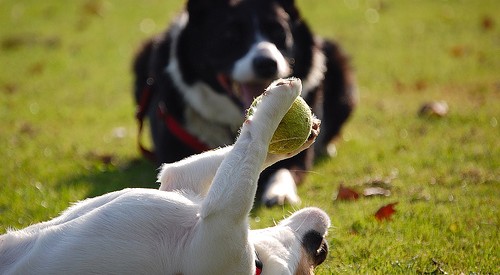In last week’s post we went over the Naughty List—all of those things you should not do in improv. Even if you don’t know the list, you know the list, because these are all of those things your parents always taught you not to do in life. Talking behind someone’s back, making someone feel stupid about what they say, simply ignoring someone’s offer—in short, being a jerk. It’s not fun for anyone in life, and it’s not fun on stage.
So now that you know all of those what-not-to-dos, today we are going to talk about the things you should do in improv. Feel free to carry these into your day-to-day as well. Your friends, family, co-workers, and universe in general will thank you for it.
Vocabulary: Nice Things to Do in Improv(Especially if they are done out of playfulness and not because you are following a rule.) |
|
|
Accepting |
Embracing each offer made by other players to advance the scene. A good thing. |
|
Chivalry |
Chivalry means not clinging to your own ideas, your own Status, or even your own life (as a character). Chivalry is daring to give up (or at least share) control. As Keith Johnstone teaches, players should allow themselves to be changed by other players. |
|
ENDOWment |
An offer that gives another improviser information about their character or world. |
|
Justifying |
Finding a solution or connection for every element introduced in the scene. The idea is to justify everything and make it make sense. Jump and Justify. |
|
Narrative |
The actual story told by the scene. Scenes should generally have a decent beginning, middle and end. |
|
OFFER |
Anything an improviser says or does on stage. Anything that gives you information about the scene. Offers can be verbal, physical, emotional, audio and more. |
|
Passenger/ Driver |
The driver is the person in control of the scene, making all the offers. The passenger is along for the ride, reacting truthfully without adding a lot of information. It’s good to be able to be both when needed. |
|
Platform/CROWE: Character, Relationship, Objective, Where, Emotion |
The who, what and where of a scene. Success of a scene often depends on a solid and clear platform, so we probably want to establish the platform as early as possible. |
|
REINCORPORATION |
Bringing back some part of the scene at a later time. |
|
Space Work |
Mime. You can use space work to create space objects. |
|
Specificity |
The more specific the offer, the better. |
|
Truthfulness/ Being OBVIOUS |
We play theatre, and theatre is supposed to somehow touch the audience, and that’s usually done by creating recognizable situations. Hence keeping things truthful is pretty powerful. Wackiness is usually cheap and not very interesting. |
|
YES, AND… |
Accepting the offer and adding something to it that is connected. The foundation of all improvisation. |

